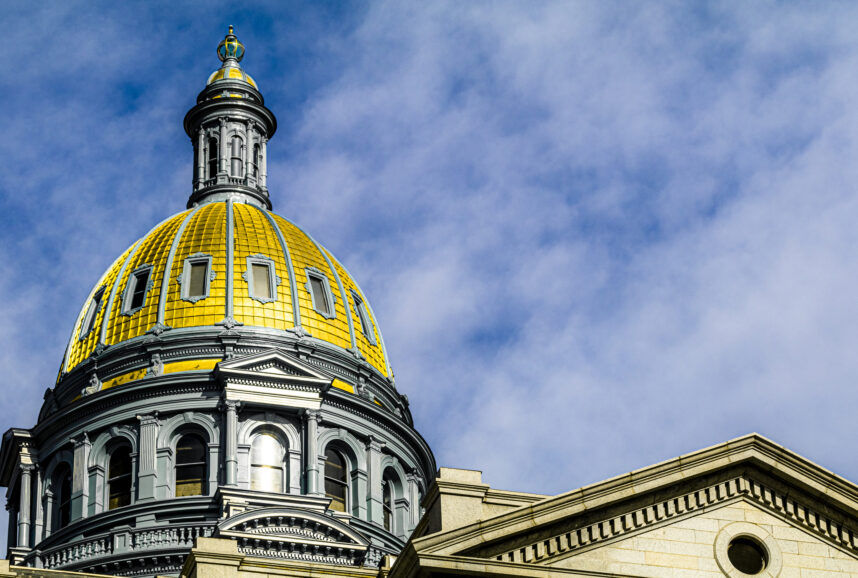PERA staff are committed to providing regular, transparent updates to state legislators about the status of the PERA trust funds and the economic impact of the public employee retirement plan across Colorado.
Currently, four different legislative committees have oversight responsibility of PERA. Each committee held hearings this fall where PERA staff provided general updates as well as specific information tailored to the needs of the different committees. Recent presentations to reporting committees in 2018 included:
- Legislative Audit Committee, held on August 14
- Pension Review Commission, held on August 15
- Joint Finance Committee (SMART Act hearings), held on November 26
- Joint Budget Committee, held on December 4
Led by Colorado PERA Executive Director Ron Baker, PERA staff presented information about PERA’s status and impact as well as major developments in 2018.
PERA continues to have significant economic impact around the state. Contributions to the Colorado economy come from $4.1 billion in total Colorado distributions, creating $6.5 billion in economic output. PERA provides retirement and other programs to one in every 10 Coloradans, paying benefits in every Colorado county, including over 25 percent of payroll in some of the state’s most rural counties.
The investment program continues to meet benchmarks through a diverse asset allocation and a long-term investment time horizon, while maintaining low costs by managing more than half of its portfolio internally, saving approximately $40 million annually in investment fees.
Senate Bill 200 (SB 200) significantly improved PERA’s funded status and every division is expected to reach full funding within the next 30 years. Major provisions of the legislation, approved during the 2018 legislative session, include increased contributions, modified benefits, and an automatic adjustment provision.
The automatic adjustment provision in SB 200 is designed to keep each division on schedule to full funding by 2048, with three components that include employer contributions, employee contributions, and the annual increase that can be adjusted over time if PERA falls behind or moves ahead of schedule to reach full funding. The direct distribution from the State’s budget could also be adjusted but cannot exceed the current funding level of $225 million. The first eligible year for any needed adjustments would be on or after July 1, 2020.
No legislative agenda items have been identified by the PERA Board for the upcoming 2019 legislative session.
In addition to the general overview, PERA staff offered more specific information for the various committees. For example, a PERA audit response plan for the Legislative Audit Committee detailed a process of examining current procedures in place for the review of actuarial reports and a review of controls over financial reporting. For the Joint Budget Committee, staff responded to several questions, such as looking for more detail about the automatic adjustment provision of SB 200 and how funded status might trigger an adjustment in the future.
At each hearing, PERA staff reminded legislators of their willingness to serve as a resource during the 2019 session as retirement security and the financial stability of Colorado’s largest public employee retirement plan continue to be priorities.
Stay up-to-date by following PERA on the Issues and subscribing to our newsletter for insights throughout the First Regular Session of Colorado’s Seventy-second General Assembly, convening on January 4, 2019.
Trust fundA fund in which money and/or other assets are held and managed by trustees on behalf of plan participants. PERA maintains trust funds for each of its Defined Benefit Plan divisions (State, Local Government, School, Denver Public Schools, and Judicial).Asset allocationAn investor’s mix of stocks, bonds, and other investments. PERA’s strategic asset allocation is set by the PERA Board of Trustees.BenchmarkA tool used to measure performance. For example, an investor can use a stock index as a benchmark to measure his/her own investment performance compared to the market as a whole.





Any action/ ratification on the Windfall Elimination Provision (WEP)?
Dear Mr. Lopez,
There hasn’t been any change in the status of H.R. 6933 since we last wrote about this federal legislation in October. Please share your thoughts on this bill with the House Ways and Means Committee at WEP.feedback@mail.house.gov.
I’d like to know why PERA has for so long assumed a bystander role in regard to the WEP. (not a rhetorical question, please answer)
Clearly, the Windfall Elimination Provision is grossly unfair, it targets only one form of retirement benefits while ignoring things such as 401K’s and numerous other vehicles people use to fund their retirement. Why is this arbitrary differentiation not being actively and rigorously opposed by PERA?
Prior to my PERA employment I paid into Social Security just like anyone else, and like many PERA retirees those were my lowest earning younger years, so my SS benefit is ALREADY quite low even before the WEP penalty. SS has had the benefit of (or at least the ability to) invest my contributions for DECADES. Had I been an unemployed drag on the economy for all my PERA years instead of being a productive citizen, then my SS benefit would be about double… anyone else see what’s wrong with this picture? The WEP was/is politically motivated, and absolutely unjust… it needs to go.
Dear Mr. Richards,
PERA is an active member of several national organizations that advocate for public employees and their benefits at the federal level. These groups include the National Council on Teacher Retirement, National Association of State Retirement Administrators, and the National Conference on Public Employee Retirement Systems. Other organizations such as the National Education Association and AARP also advocate for public employees’ retirement security. Please use this email address to express your comments on the WEP to the House Ways and Means Committee: WEP.feedback@mail.house.gov